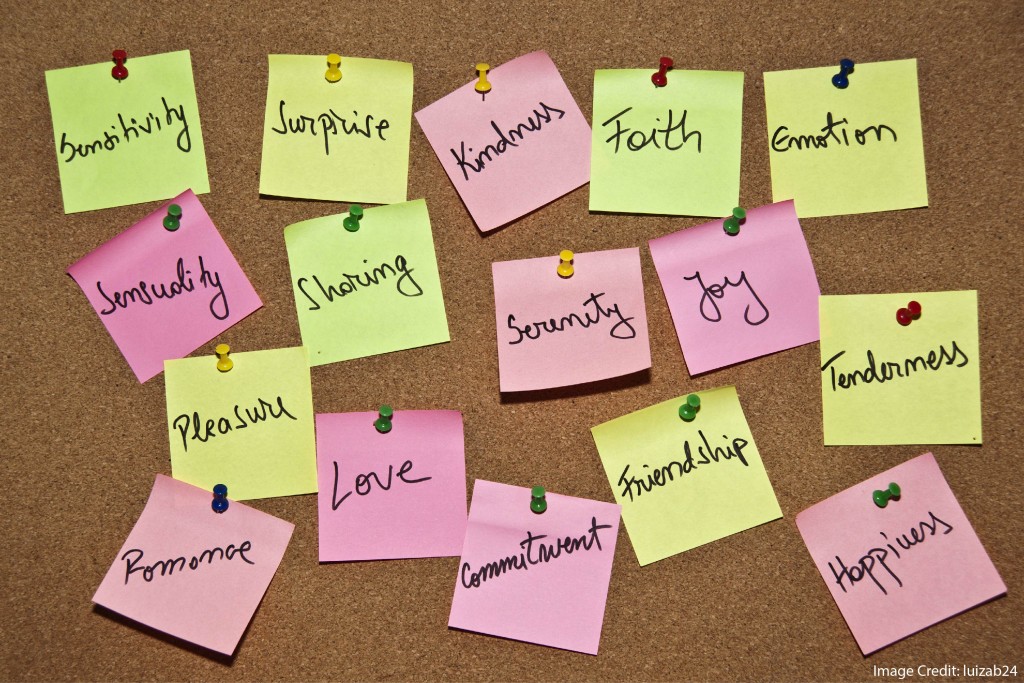Imagine yourself following a route that you know quite well: perhaps your morning commute. You take your car out of your garage; drive past the Dunkin’ Donuts, past the old movie theater, past the grocery store; you park in your favorite spot, walk through the lobby, down the library corridor…
You can easily think of these places in order because you’ve followed this same path hundreds of times. Well, an ancient memory trick takes advantage of your well-rehearsed visual memory.
If you have–say–a list of words to memorize, you can take some time to associate each word with those places. For example, if you have to memorize the words “tomato, airplane, tuba,” you can create a vivid picture of a tomato splatted on your garage door, an airplane flying over the Dunkin’ Donuts, and a tuba band marching in front of the movie theater.
You can then recall those words simply by mentally following your morning commute to work.
Even if you have a very long list of words, this method still works; you can, after all, visualize many, many places along this familiar route.
The Research Questions:
This memory trick–called “the method of loci”–has been around for centuries. Memory champions typically win memory contests by using it. But, can just anyone do it? Do you need to be born with a special memory talent?
Martin Dresler’s research team answers some of these questions. He started by scanning the brains of memory champions while they did some memory feats, hoping to discern neural patterns associated with excellent memory.
He also scanned some non-memory experts as a baseline for comparison.
Sure enough, he found connectivity patterns that helped distinguish between these two groups.
Next, he trained those non-memory experts in two memory techniques. One group practiced the method-of-loci approach for 40 days, 30 minutes each day.
The other group used a well-established short-term memory exercise. (Perhaps you’ve heard of the n-back test.)
What did the researchers find?
The Research Answers:
First, the method of loci really helped. Those trained in this method more than doubled their ability to remember words on a list. (Those who did short-term memory training saw little more improvement than control subjects.)
Equally interesting: the method of loci training created the neural patterns that Dresler had found in the memory experts.
That is: this training paradigm BOTH helped participants remember more words AND changed their brain connectivity patterns.*
In other words: we have two really good reasons to believe that method of loci training helps people remember word lists.
The Inevitable Caveat
If you’ve read this blog for a while, you know I’m going to point out a downside sooner or later. That moment has arrived.
First, the method of loci helps students do something we don’t often ask them to do: remember lists of unrelated words. It’s a cool party trick, sure. But, at what point do we care if our students can do such things?
For example: I suspect the method of loci could be used to help students learn all the elements in the periodic table in order. But–why would we want them to do that? Would such knowledge meaningfully improve their understanding of chemistry?
Second, notice the extraordinary about of time the training took: 30 minutes a day for 40 days! Imagine what else you could do with those twenty hours.
So, I’m not exactly opposed to teaching the method of loci; I’m just unimpressed by it. The method requires lots of training time, and creates a benefit that doesn’t help very much.
If, by the way, you have a good use for this method, please let me know. I’d love to hear about its practical classroom uses.
_______________________________________________________
- Although it’s true that this training changed the brains of those who participated in it, it’s also true–as I’ve written before–that any activity repeated at length changes your brain. This finding is interesting, but not exactly surprising.





I like the method and consider it a very valuable find. I plan on using it. If we are honest, there are some things we just do because they are requirements or a means to something else, students and workers, alike. The method of loci is perfect for just such occasions. And, who doesn’t want to impress their friends with good memory at a party? I believe this method would be great for certain jobs where lists need to be remembered. I would have benefited from this greatly when I was a cavalry scout on reconnaissance missions. We had to remember a lot of detail about our observations but did not need to keep that detail after reporting it. It seems this would be great for any investigative work, too. Detectives, criminal science investigators, and scientists in general could benefit.